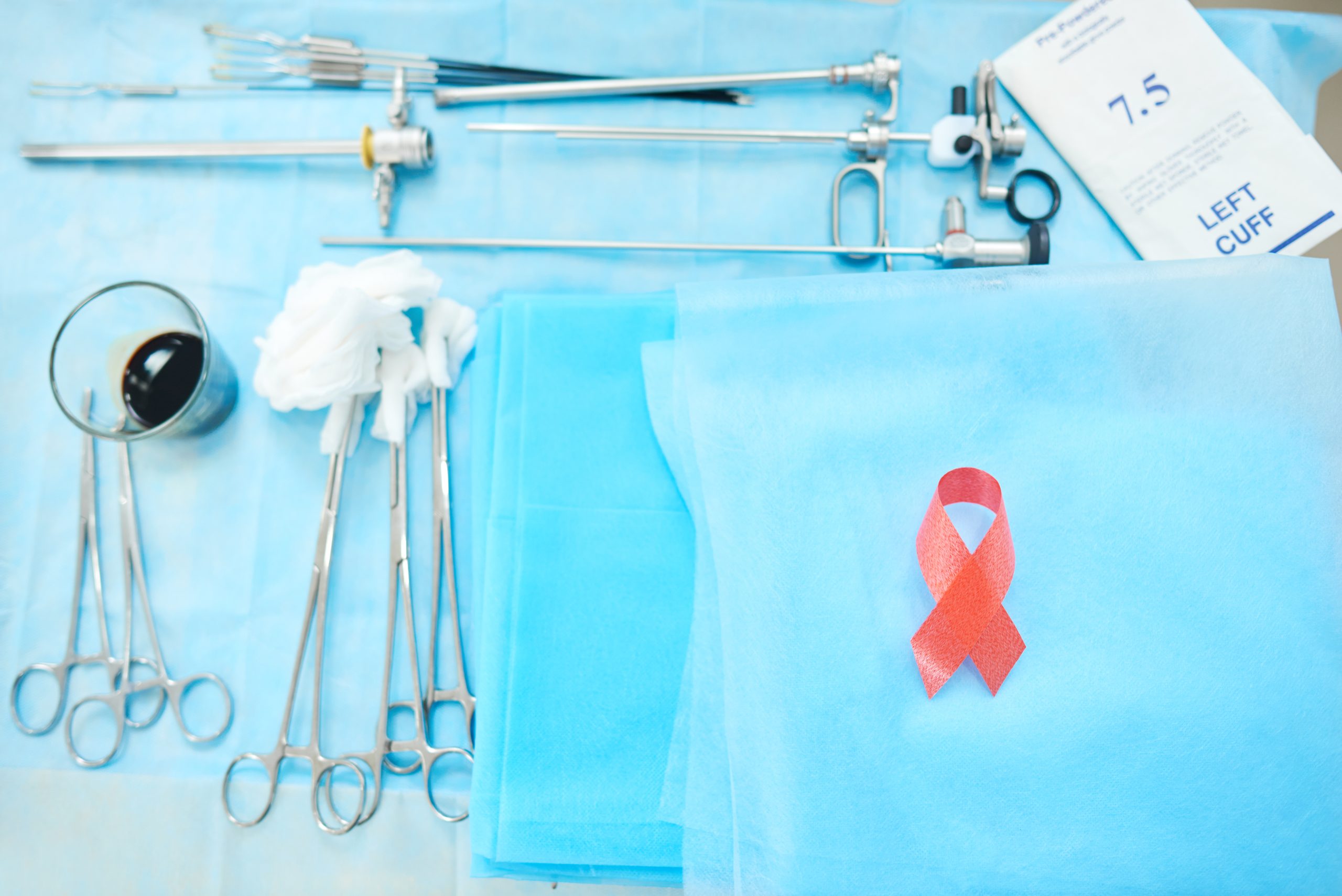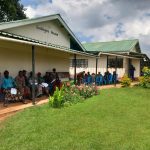Cancer Surgery
Surgery is one of the oldest treatment therapies for cancer. It involves the physical removal of tumors or tissues from your body. Surgical Oncologists are specially trained doctors who perform surgery to remove cancers from your body.
Find out everything you need to know about your cancer surgery below.

When will a doctor recommend surgery for you?
There are different types of surgeries in oncology. Some are minor procedures while others are procedures. Your doctor may recommend surgery during any of the following stages of screening and treatment.
Cancer Diagnosis
A cancer diagnosis is mostly done through biopsy. A biopsy involves taking small tissue samples to be examined by pathologists to determine whether or not you have cancer. A pathologist is a cancer doctor that checks cells, tissues, and organ samples for cancer.
Not all biopsies involve surgeries,image-guided biopsies and fine needle aspiration are less invasive.
Cancer Staging
Doctors need to know how big a cancer is and if it has spread to other places before they give treatment. Cancer is grouped as either stage I, II, III, or IV depending on the size and if it has spread.
To perform staging, your doctor may need an operation to remove a tumor or sample of the tumor. While removing the cancer sample, your doctor will also check the surrounding tissues, organs, or lymph nodes to see if the cancer has spread to them.
Conventional radiological imaging with CT scans, MRIs, ultrasounds, and X-rays can also be used for staging.
Your doctor will use the pathologist’s findings to determine your next course of treatment.
Cancer Treatment
Surgery is usually done on solid tumors to remove the cancer itself. Solid tumors are cancers that are not liquid such as leukemia. Resection or excision is the surgical process of removing tumors.
Depending on where the tumor is, surgery can be a minor or major procedure. Some surgeries are not invasive such as robotic or laparoscopic surgery.
Your doctor will remove all the tumors whenever possible and recommend additional treatment such as chemotherapy or radiation when it cannot be removed completely. Debulking is the process of removing part of the tumor.
Reconstructive surgery
In the course of cancer treatment, some organs or cells get damaged. Doctors perform reconstructive surgery to restore how you looked or functioned before cancer treatment as much as possible. These reconstructive surgeries can be done as the treatment continues or once you have healed.
Breast reconstruction after mastectomy is a good example of reconstructive surgery. Breast mastectomy is the removal of part or the entire breast in breast cancer treatment.
Palliative care
Some cancer cases are too advanced to treat completely. Palliative care helps to relieve discomfort or pain from cancer and improve your quality of life. Your doctor can recommend surgery to help you with the following:
- Stop bleeding
- Ease nerve pressure or pain
- Insert a feeding tube or medication port
- Unblock the digestive system or other areas.
- Prevent broken bones
Some palliative care surgeries can also qualify as supportive surgery before the commencement of other treatment therapy. A good example is the insertion of a catheter for some chemotherapy treatment. A catheter is a tube that is inserted into your bladder to help you pass urine.
Are there any side effects of surgery?
Surgery has risks like every other treatment therapy. However, surgical oncologists are specially trained to reduce these risks and ensure successful surgery. You may be subject to several tests to reduce certain risks during a surgical procedure.
Some of the common side effects of surgery include:
- An infection in the area of surgery. Antibiotic medication helps to reduce or relieve infections.
- Pain where the surgery was performed.
- Bleeding
- Reaction to anesthesia
- Damage to surrounding tissue
What preparations do I need for surgery?

Your doctor and surgeon may recommend certain tests and examinations before carrying out surgery to see if you are a good fit. Some of these tests include:
- Radiological Imaging with CT scans, MRIs, X Rays, etc
- Blood tests
- Electrocardiogram
Your doctor may also limit your diet to specific foods before the surgery. Follow the guidelines to avoid rescheduling your surgery. In addition, you may also need to have some supplies that your doctor will recommend for taking care of the wound after the surgery such as bandages and antiseptic ointments.
After surgery, your doctors will advise you how to take care of yourself. You will be told:
- Activities you can and cannot perform
- How to find out if you have an infection and how to take care of it
- How to manage pain
- Your diet after the surgery
- How to care for your wound
- When you can resume daily activities
How long does it take to heal from a surgery?
Healing from surgery depends on many factors such as your age, weight, and type of surgery among others. Generally, healing may take from a few hours to some months.
Your doctor may recommend some activities or therapy to hasten your healing process. In addition, you may also undergo counseling for some types of cancers to help you cope with your new status. Contact your doctor if you experience the following symptoms after surgery.
- Not able to concentrate
- Coping through alcohol or drugs
- Insomnia
- Loss of appetite
- Feeling sad, frustrated, overwhelmed, and irritable
- Withdrawing from other people
- Fatigue
Cases of cancer surgery affecting sexuality, intimacy, and fertility are also not uncommon. The effects may be psychological or physical. A counselor will help you overcome some of these challenges and help you get back to everyday life.
Cancer surgery at International Cancer Institute
International Cancer Institute has linkages and partnerships with the best hospitals and consultants to ensure our patients receive the best care for the type of cancer. We recommend the right place for your surgical procedure after performing all the tests and examinations unique to your case.
We also prepare you for surgery by offering palliative care, chemotherapy, immunotherapy, targeted therapies, and blood tests, among others.
Still not convinced you should receive surgery? Come for a second opinion for your diagnosis and alternative care plans including phase I, II, III, & IV clinical trials.
Opening Hours
| Monday – Friday | 8.00 – 17.00 |
| Weekends | Closed |
| Holidays | Closed |
Quick Contacts
- Address P.O. Box 8088-30100, Nandi Rd., Eldoret
- Email info@intercancer.com
- Phone +254 718 473 446





